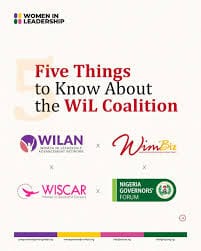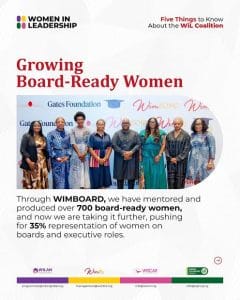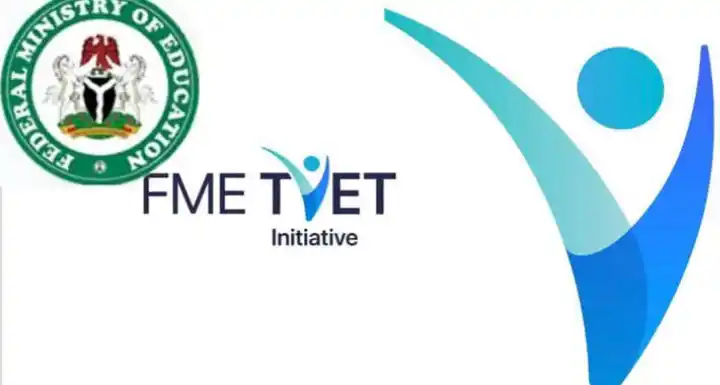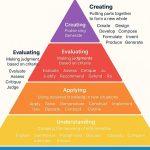
NGF Launches Women in Leadership Coalition for 35% Representation
The Nigeria Governors’ Forum (NGF), through its Gender Affairs Department, has officially partnered with the Women in Leadership Advancement Network (WILAN), Women in Management, Business and Public Service (WIMBIZ), and Women in Successful Careers (WISCAR) to launch the Nigeria Women in Leadership (WiL) Coalition.
This coalition marks a significant milestone in the push for gender equality and women’s empowerment in Nigeria, aiming for 35 percent representation of women in corporate boards, executive leadership, and across federal and state cabinets. The initiative is designed to bridge the gender gap in leadership while addressing systemic barriers that have long hindered women’s advancement in governance, business, and society.

Why the Women in Leadership (WiL) Coalition Matters
Representation matters. Globally, studies show that increasing women’s leadership and participation in decision-making bodies leads to more inclusive policies, stronger governance, and improved economic growth. In Nigeria, where women account for nearly half of the population but remain underrepresented in leadership roles, the launch of the WiL Coalition is both timely and strategic.
- Closing the Gender Gap: According to the Inter-Parliamentary Union (IPU), Nigeria ranks among the lowest in terms of female political representation in Africa. The WiL Coalition directly addresses this challenge.
- Promoting Diversity in Leadership: Research by McKinsey shows that companies with greater gender diversity in leadership are 21% more likely to experience above-average profitability.
- Enhancing Governance: Women’s voices in decision-making contribute to policies that better reflect the needs of families and communities.
NGF’s Commitment to Women’s Empowerment
According to the NGF, the coalition is not only about representation but also about creating enabling environments for women to thrive. “Our goal is to create pathways for women to lead and influence,” the Forum stated.
The NGF also emphasized that the coalition is working on advancing progressive workplace policies that benefit both men and women. Among the recommendations are:
- 16 weeks of paid maternity leave – Allowing women more time to recover after childbirth and balance their career with family responsibilities.
- 14 days of paid paternity leave – Encouraging fathers to take an active role in early childcare while promoting gender balance at home and at work.
These reforms align with global best practices, as seen in Nordic countries, where generous parental leave policies contribute to higher female participation in the workforce. By integrating such policies, Nigeria takes a progressive step toward reducing career interruptions that disproportionately affect women.
Women’s Economic Empowerment (WEE) Policy
The Forum also highlighted its role in driving the domestication of the Women’s Economic Empowerment (WEE) policy across all 36 states in Nigeria. This initiative provides women with access to tools, resources, and opportunities that enhance their ability to participate in the economy meaningfully.
- Access to finance: Creating funding opportunities for women-led businesses and entrepreneurs.
- Skills development: Equipping women with 21st-century skills for employability and digital innovation.
- Policy advocacy: Ensuring that economic and labor policies are gender-responsive and inclusive.
- Capacity building: Strengthening women’s leadership capacity through mentorship and training programs.
By embedding WEE policies at state and federal levels, the NGF ensures that women are not left behind in Nigeria’s pursuit of Sustainable Development Goals (SDGs), particularly SDG 5 (Gender Equality) and SDG 8 (Decent Work and Economic Growth).
Key Goals of the Women in Leadership (WiL) Coalition
The WiL Coalition has committed to advancing women’s leadership in all sectors of Nigeria by:
- Elevating Women’s Voices in Governance: Advocating for increased female participation in political structures, from state assemblies to the federal cabinet.
- Expanding Opportunities in Business: Supporting women to break barriers in executive boardrooms and entrepreneurial ecosystems.
- Driving Civil Society Participation: Encouraging women leaders to influence policies at grassroots and community levels.
- Promoting National Development: Ensuring women’s contributions are recognized as vital to Nigeria’s inclusive growth.
- Supporting Inclusive Leadership: Building coalitions across public and private sectors to achieve balanced representation.
Five Things to Know About the Women in Leadership (WiL) Coalition
Here are five essential insights into the Nigeria Women in Leadership (WiL) Coalition:
- It Elevates Women’s Voices: By amplifying women’s perspectives, policies will reflect a broader and more inclusive range of citizen needs.
- It Expands Decision-Making Opportunities: The coalition pushes for more women in decision-making bodies, ensuring equitable governance.
- It Drives Empowerment: By addressing barriers such as workplace discrimination, lack of access to finance, and cultural biases.
- It Promotes National Development: Research shows that when women succeed, economies grow faster and communities thrive.
- It Supports Inclusive Leadership: Leadership that values both men and women’s perspectives fosters stronger, more resilient institutions.
Challenges Facing Women in Leadership in Nigeria
Despite progress, Nigerian women continue to face several challenges in attaining leadership positions:
- Cultural and social barriers: Gender stereotypes often limit women’s roles to family and caregiving.
- Political exclusion: High entry costs, lack of party support, and electoral violence deter women from political participation.
- Workplace discrimination: Women are often paid less and given fewer opportunities for promotion.
- Limited mentorship: Fewer role models and mentors for aspiring female leaders.
- Lack of enabling policies: Insufficient legal frameworks to protect women’s workplace rights and opportunities.
Global Best Practices and Nigeria’s Way Forward
Nigeria can learn from countries with higher women representation in leadership. For example:
- Rwanda: Over 60% of its parliament members are women, the highest in the world.
- Norway: Enforces corporate quotas requiring women on boards, boosting gender diversity in companies.
- South Africa: Institutionalized gender mainstreaming policies in government, leading to better representation.
By adapting these models and localizing them, Nigeria can move closer to achieving the 35% representation target set by the WiL Coalition.
Conclusion
The launch of the Nigeria Women in Leadership (WiL) Coalition by the NGF, WILAN, WIMBIZ, and WISCAR is a bold and commendable step toward gender equity in Nigeria. Achieving 35% representation will not only empower women but also strengthen Nigeria’s democracy, business competitiveness, and socio-economic development.
As a key partner, the NGF has pledged to continue championing gender-responsive reforms, ensuring that every woman has the tools, resources, and opportunities to thrive. The time to support women’s leadership is now—because when women lead, nations rise.








